Veteran TV writer Jeffrey Scott claims that Disney breached a contract when it used his 1984 production bible to create a “Muppet Babies” reboot. But is it copyright infringement?
If you were a little kid in the 80’s or 90’s, chances are you spent Saturday mornings plopped in front of the TV with a bowl of sugared cereal until your parents told you to go play outside. And chances are that one of your Saturday morning staples was “Jim Henson’s Muppet Babies.” This animated series, which ran on CBS from 1984 to 1991, featured baby versions of Kermit, Fozzie and the other Muppets, all living together in an orphanage. Ok, technically, I guess it was supposed to be some sort of nursery, but none of the babies ever got picked up or brought home. The only adult supervision was a character named Nanny, and they only showed her from the shoulders down.

In 2018, Disney launched a reboot of “Muppet Babies” on its Disney Junior network, which it recently renewed for a third season. Unlike the hand-drawn animation of the original, the new version of “Muppet Babies” uses computer generated animation. Nanny is now “Miss Nanny,” a younger version of the character voiced by Jenny Slate. Other than that, the show stays pretty true to the original.
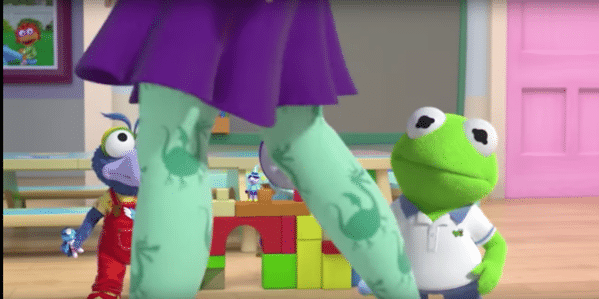
Scott v. Disney: The Complaint
According to a new complaint (read here), filed yesterday in Los Angeles by longtime TV writer Jeffrey Scott, that’s one of the problems. Scott wrote most of the episodes for the first three seasons of the original series, and received a “Developed for Television By” credit for all of the original episodes. He also wrote “The Muppet Babies Production Bible” in 1984, which “created and defined the foundational elements of the original show.” Scott contends that in exchange for the bible, original series owner Marvel Productions promised that he would get an opportunity to write all episodes of the show, as well as a royalty and credit on future episodes whether he wrote them or not.
Scott claims that Disney didn’t live up to this bargain after acquiring series rights from Marvel. According to the complaint, Disney used elements from the production bible in the new “Muppet Babies” reboot without offering him a chance to write new scripts, paying him a royalty, or giving him credit. Scott also accuses Disney of taking elements for the new series that he pitched to the studio in 2016, including the idea of having the nursery be a big warm room in a charming old house and making the nanny character younger.
It’s relatively rare for these types of cases to be filed by industry veterans like Scott, although Disney faced a somewhat similar situation in 2017, when screenwriter Gary Goldman accused Disney of taking his ideas to create the animated film “Zootopia.” That case was ultimately dismissed.
Copyright Infringement vs. Breach of Contract
Another interesting aspect of the new complaint is that it asserts claims for copyright infringement and breach of contract—seemingly for the same conduct. On one hand, Scott contends that Disney infringed his copyright by using elements of the “Muppet Babies” production bible in its reboot “without his authorization or consent.” But at the same time, he alleges that Disney breached his contract by not giving him a per-episode royalty and credit, and by refusing to offer him the opportunity to write scripts for the reboot. Had Disney done these things, its use of elements from the production bible would have been authorized, which would seemly contradict the allegations of the copyright infringement claim.
Generally speaking, anyone who violates one of the exclusive rights of the copyright owner (such as the right to prepare derivative works) can be liable for infringing the owner’s copyright. Conversely, anyone authorized by the copyright owner to use the work is not an infringer. So, for example, if you were to grant me a license to distribute copies of your copyrighted book in exchange for royalties, and I shortchanged you on one of payments, you’d typically be limited to suing me for breach of contract, not copyright infringement.
However, like most aspects of copyright law, things tend to be a get a bit more complicated than they first seem. As a licensor, you could sue me for copyright infringement if I were to exceed the scope of my license. For example, if you only granted me the right to distribute copies of your book in California, and I distribute them in New York, that would be an act outside the scope of the license that would violate one of your exclusive rights under copyright.
Conditions vs. Covenants
Contract terms that limit the scope of a license are called “conditions.” Contract terms unrelated to the scope of the license are called “covenants.” The breach of a condition can give rise to a claim for copyright infringement, while the breach of a covenant only gives rise to a claim for breach of contract.
Sometimes it can be tricky to determine whether a particular contractual term is a condition or a covenant. Licensors will typically argue that a breached term is a condition, in order to give rise to a claim for infringement. Licensees will argue that it’s a covenant that doesn’t constitute infringement. A court will ultimately decide by examining all of the terms of the license agreement, and applying the relevant state’s contract law.
Rescission and Reversion
There are a couple of other situations in which a breach of contract can give rise to a claim for copyright infringement. If a licensee breaches its licensing agreement in a material way, the licensor may be permitted to rescind the license. Rescission puts the parties back to their former positions, as if the contract never existed. If the licensee continues to use the copyrighted work after it’s been rescinded, that constitutes infringement. In addition, most written license agreements have express provisions permitting the licensor to terminate the license if there’s been a material breach (such as a failure to pay the license fee). If a licensee continues to exploit the work after the license has been terminated and rights have reverted to the copyright owner, that too will constitute infringement.
What’s Next?
Based on my review of the “Muppet Babies” complaint, it appears that while a draft versions of a contract for the original series were prepared, no written contract was ever signed. Scott claims that the absence of a signed writing means that the copyright in his production bible was never assigned to Marvel. However, Scott does allege that he permitted Marvel to use the bible so long as Marvel complied with the payment and credit terms of the parties’ deal.
I suspect that Disney will argue that (among other things), that insofar as Scott’s agreement with Marvel even extended to a series reboot, breach of that agreement doesn’t give rise to a claim for copyright infringement, as opposed to a claim for breach of oral contract. Because the copyright claim is the only basis for federal court jurisdiction, if it ends up being dismissed, the rest of the case will likely be sent to state court.
Given that “Muppet Babies” is based on pre-existing characters owned by Disney, there are also likely to be plenty of questions in the case about the extent to which Scott’s contributions to the original series production bible are separately copyrightable and whether Disney had the right to use those contributions in the reboot without Scott’s creative involvement or financial participation.
I also continue to have plenty of questions, like “Why does Nanny have no head?” and “Where in the hell are the Muppet Babies’ parents?” Hopefully answers are on the way.
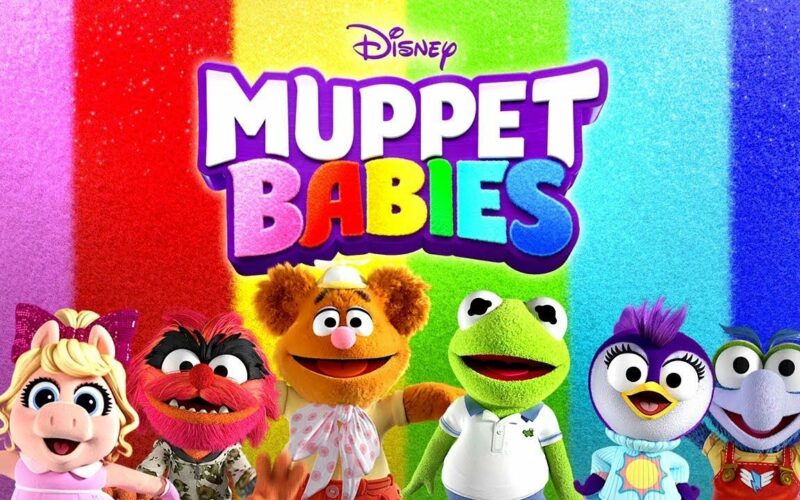
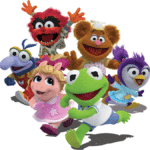
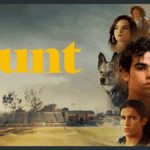
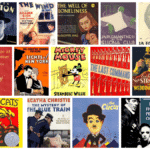
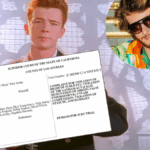

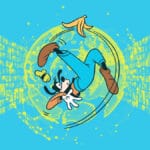
1 comment
Cue Mahna Mahna (doo doo doo doo doo!) while waiting for the answers to the very astute questions.